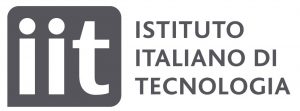
Politecnico di Milano participates to the present project through the Micro and Nanostructured Materials Lab (NanoLab) of the Department of Energy.
NanoLab is focused on the nanoscale design, production and investigation of novel materials. The NanoLab mission is the synthesis and study of novel materials for the understanding of fundamental physical phenomena and for technological applications.
The Lab has developed a bottom-up nanotechnology approach for the synthesis and investigation of nanostructured films and surfaces, atomic clusters and nanostructures, based on competences of physics of matter (solid state physics, surface science and plasma physics). Materials are fabricated by physical vapour deposition (PVD) techniques such as Pulsed Laser Deposition (PLD) and evaporation. Morphological, structural and electronic properties are investigated by scanning probe microscopy (AFM/STM/STS) techniques and vibrational spectroscopies (Raman and surface Brillouin scattering). Models and theory for inelastic light scattering, solid state physics and plasma support the experimental activities.

IIT participates to the present project through Milan’s Center for Nano Science and Technology (CNST). CNST operates at the forefront of science and technology of printed electronics, nanomaterials for energy and optoelectronics. The research infrastructures that CNST will bring into the SpaceSolarShield project comprise PVD systems for advanced coating processing and characterization equipment for structural, mechanical and optical properties analysis.
The Nano2Energy (N2E) lab, led by Dr. Fabio Di Fonzo, is devoted to the exploitation of nanostructured materials in the field of advanced energy conversion systems: photoelectrochemical solar fuel conversion, fuel cells, advanced batteries and next generation nuclear reactors. The N2E lab has a consolidated expertise on the design, setup and utilization of proprietary custom-crafted experimental facilities for coatings processing, such as Pulsed Laser Deposition (PLD) systems, sputtering sources and ion-beam assisted deposition. All the available systems are flexible and suitable for simple and co-deposition processing. A significant know-how is available concerning the relationship between processing parameters, properties and response to severe conditions of a wide range of coating materials, including ceramics (oxides, carbides, nitrides and combinations), metals, alloys and nanocomposites. Relevant to this project, is the activity on advanced ceramic coatings for use in extreme environments.

Through its Division KEMA Labs, CESI is the world leader for the independent Testing, Inspection and Certification activities in the electricity industry.
With a legacy of more than 60 years of experience, CESI operates in 70 countries around the world and supports its global clients in meeting the energy transition challenges. CESI also provides civil and environmental engineering services. In addition, CESI develops advanced solar cells for space applications.
CESI participates to this project with its Solar Cell Unit located in Milano that has more than 30 years’ experience in the research, development and production of high efficiency space solar cells for civil applications and is one of the top global suppliers of multi-junction cells using III-V based semiconductors.
CESI has cooperated in many significant projects for interplanetary missions (on planets such as Mercury, Mars and Jupiter). The heritage of CESI includes more than 200,000 manufactured solar cells, powering more than 90 civil satellites for Clients from over 25 different countries worldwide.
Solar cells are manufactured at our own facility in Milan using our proprietary technology. We commercialize both bare solar cells and SCA (aka CIC) to serve the civil application markets with the best cost versus quality mix.
The aim of this project for CESI is the development of a highly radiation resistant solar cell for the mission with high level of charged particles irradiation and the study with ITT of innovative protection approach for this harsh environment.
